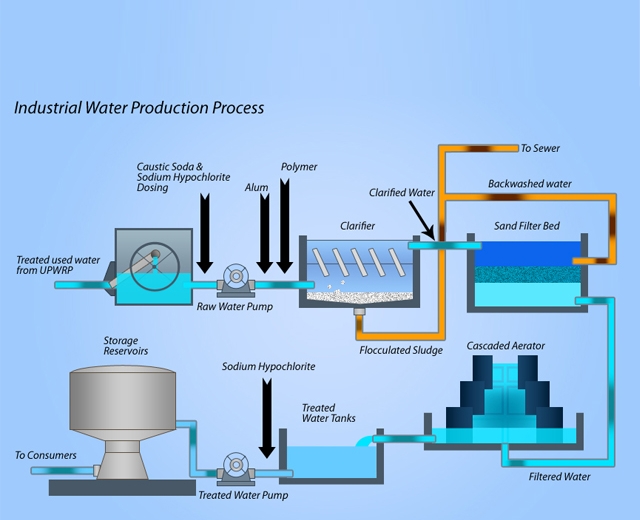Purchase a Water Purification System for Pure and Healthy Water
Wiki Article
Why a Water Purification System Is Vital for Tidy, Safe Water
Accessibility to tidy, risk-free water is a basic human right and a cornerstone of public wellness. A water purification system stands as an important solution to minimize these threats, making sure that people and neighborhoods can access safe alcohol consumption water.Significance of Tidy Water
Access to clean water is a fundamental need for human health and health. Infected water can lead to severe wellness issues, consisting of stomach illnesses, cholera, and dysentery, particularly in vulnerable populations such as kids and the elderly.Moreover, tidy water is critical for hygiene and health techniques, which are essential in avoiding the spread of contagious illness. Ample water system sustains proper sanitation facilities, promoting a healthier atmosphere. Additionally, access to secure water influences socioeconomic aspects, as it makes it possible for communities to involve in agricultural and commercial tasks, inevitably adding to economic growth.
In numerous areas, the absence of tidy water exacerbates hardship and inequality, further impeding development toward sustainable development objectives. For that reason, making sure accessibility to clean water is not only a public health important however also a cornerstone for social equity and economic growth. Efforts to boost water top quality and facilities have far-reaching benefits, promoting much healthier areas and enhancing lifestyle.

Common Contaminants in Water
Ensuring the schedule of clean water is weakened by various impurities that can endanger its safety and security and high quality. The presence of pathogens, such as viruses, germs, and bloodsuckers, positions substantial health risks, especially in locations doing not have adequate sanitation. These bacteria can cause waterborne conditions, resulting in serious illness and even death.Chemical impurities likewise present a crucial worry. Hefty steels, including arsenic, lead, and mercury, frequently enter water materials through commercial discharges or rusty plumbing. These materials can gather in the body gradually, causing long-lasting health problems such as neurological damages and developing disorders.
Furthermore, agricultural runoff introduces chemicals and plant foods right into water supply, which can interfere with environments and adversely influence human wellness. Nitrates, commonly found in fertilizers, can trigger severe problems like methemoglobinemia, specifically in babies.
Advantages of Water Filtration Equipments
Identifying the crucial requirement for risk-free alcohol consumption water, water purification systems supply a myriad of advantages that boost public health and ecological sustainability. Primarily, these systems effectively eliminate hazardous pollutants, including germs, infections, hefty steels, and chemicals, guaranteeing that the water taken in is devoid of pollutants and pathogens. This reduction in contaminants substantially decreases the risk of waterborne diseases, promoting total community health.In enhancement to health advantages, water purification systems add to environmental sustainability by decreasing reliance on bottled water, which typically produces too much plastic waste. By making use of a filtration system, households can decrease their carbon impact and add to a much more lasting ecosystem. These systems can boost the taste and smell of water, making it more tasty for everyday consumption.

Various Kinds Of Filtration Approaches

One common technique is reverse osmosis, which makes use of a semi-permeable membrane layer to different water from liquified impurities and solids. This procedure effectively decreases pollutants, including heavy metals and chemicals. One more commonly utilized strategy is ultraviolet (UV) sanitation, which uses UV light to neutralize viruses and germs, making them harmless without the use of chemicals.
Triggered carbon purification is another popular strategy, utilizing carbon to adsorb natural compounds, chlorine, and undesirable odors, improving preference and odor high quality. Distillation, a process that involves boiling water and condensing the vapor, effectively removes impurities and minerals yet might call for even more energy compared to other techniques.
Ion exchange is often utilized to soften water by changing calcium and magnesium ions with salt or potassium ions. Each approach has its benefits and limitations, making it vital to recognize their capabilities and performance in dealing with certain water high quality problems - Water Purification System. Eventually, picking the suitable filtration technique is crucial for making certain tidy and risk-free drinking water
Selecting the Right System
Selecting an appropriate water purification system needs mindful factor to consider of various elements, consisting of the certain pollutants present in the water, the volume of water required, and the desired filtration method. It is important to carry out a water top quality test to identify pollutants such as bacteria, heavy steels, or chemical toxins. This details will direct you in picking a system that successfully targets those particular contaminations.
Next, evaluate your family's daily water intake to identify the system's ability. Systems are offered in different dimensions, from point-of-use filters for alcohol consumption water to whole-house units that cleanse all water entering your home.
In addition, consider the purification Recommended Reading technique that ideal fits your needs. For example, reverse osmosis is extremely effective for getting rid of a large range of contaminants, while UV filtration is excellent for removing microorganisms.
Final Thought
In conclusion, the implementation of water purification systems is vital for guaranteeing accessibility to safe and tidy water. By recognizing the significance of clean water and the benefits of different purification methods, areas can make educated decisions to guard their health and wellness and advertise socioeconomic stability.Recognizing the critical requirement for safe alcohol find more info consumption water, water purification systems offer a myriad of benefits that enhance public wellness and ecological sustainability.In addition to health and wellness benefits, water purification systems contribute to ecological sustainability by minimizing reliance on bottled water, which often creates extreme plastic waste. Ultimately, the adoption of water purification systems is an aggressive step toward making certain clean, risk-free water for future generations while guarding public health and the setting.
Choosing an appropriate water filtration system requires cautious factor to consider of different variables, consisting of the specific impurities existing in the water supply, the quantity of water needed, and the desired filtration method.In final thought, the execution of water filtration systems is crucial for making sure accessibility to clean and risk-free water.
Report this wiki page